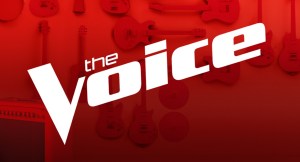Apple TV+ is the home of one of the most anticipated sci-fi series in the works right now – The Murderbot Diaries starring Alexander Skarsgård. The show is based on a series of short stories, novellas and novels by author Martha Wells, and they are worth checking out before the adaptation premieres. Read on for a bit about the series and the best ways to give it a read before it hits the small screen.
The titular role in Apple TV+’s Murderbot will be played by Skarsgård, who will also executive produce the TV series with co-creators Chris and Paul Weitz. In the months after the show was announced, Deadline reported several more cast members – David Dastmalchian, Noma Dumezweni, Sabrina Wu, Tattiawna Jones, Akshay Khanna and Tamara Podemski. Wells told interviewers that she has seen a script for the show and is “really excited about it.” Fans are especially eager to see it on Apple TV+, where other sci-fi adaptations have done well, including Silo, Foundation and Invasion, to name a few.
Videos by PopCulture.com
Adaptations have always been an important part of the Hollywood ecosystem, but these days there is a particular focus on fidelity to the source material. It’s also not uncommon for fans to plan their reading time and/or their viewing time around comparing adaptations to the books, comics or games they’re based on, but Murderbot is a special case here because it is drawing many readers back into the world of short fiction, as opposed to door-stopper novels.
The Murderbot Books
Wells’ Murderbot Diaries series began in 2017 with the novella All Systems Red, and is now comprised of five novellas, two novels and three short stories. They are all written in the first-person perspective of an artificial intelligence that privately refers to itself as “Murderbot,” but is called “SecUnit” by most other characters. Murderbot is comparable to sci-fi figures like RoboCop or the Terminator, but from this inside perspective, readers see that it is actually overwhelmed by anxiety and paranoia, and it is obsessed with consuming soap operas and other media as much as possible. This balance of comedy, tragedy and action seems to balance on a knife’s edge, yet it never falters.
The stories gradually flesh out this futuristic setting – here, humanity is in the process of colonizing many planets and solar systems, traveling space and flying through “wormholes” when extra-solar travel is needed. Economic power is centered in the “Corporation Rim” where ruthless companies compete for control of resources, and in the process practice indentured servitude, keeping both people and AIs like Murderbot in fear.
Several different types of AI are present in the story, but Murderbot is a Security Unit made up of mostly robotic parts with a few organic features included to make it more discerning and flexible in its thinking. SecUnits are manufactured and owned by “bond companies” which rent them out to clients for planetary surveys, terraforming missions, mining installations and so on. These incredibly powerful SecUnits are kept obedient by a “governor module,” leading many people to believe they are not fully sentient. However, from the beginning of the story we learn that Murderbot has already hacked its own governor module – it simply carries on doing its job so that it can carve out as much free time as possible to watch TV.
The story explores complex questions about free will and self-determination, as well as the implications of AI and how that could evolve into new forms of sentience that might look very different from human minds. It focuses heavily on character development and relationships, though over time it dives more and more deeply into its setting, which proves to be more unique the closer you look. The latest Murderbot book was released in November of 2023, and according to Wells another novella is on the way – possibly later this year.
How to Read The Murderbot Diaries
All five Murderbot novellas and both Murderbot novels are available in print, digital and audiobook formats. In general, The Murderbot Diaries should be read in publication order starting with All Systems Red (2017) and going through System Collapse (2023), though a few fans on Reddit might recommend tweaks to this order. The short stories fit into this order as well – “Compulsory” is a prequel story published in Wired Magazine in January of 2019, but it is best read between the 2018 novella Exit Strategy and the 2020 novel Network Effect, and so on.
What sets Murderbot apart in this regard is the natural question of how to obtain these books, and here, I’ll draw on personal experience. The Murderbot Diaries was on my to-be-read list for years based on recommendations, but I kept putting it off because of the cost. I do most of my reading with audiobooks, and each of these novellas cost around $10 on Audible, or $14.95 if I were to use one of the service’s monthly “credits.” The novellas range in length from just over three hours to just over four hours each, and all together they run 18 hours and 34 minutes long. One of the novels is just under 13 hours long, and the other is just under seven hours long, but both of those are more expensive than the novellas. For me, it was hard to justify spending about $90 on that much audiobook when I’m accustomed to getting 30 or 40 hours of story at a time for just one credit.
That brings me to one of my favorite things about The Murderbot Diaries – it got me out to my public library. After Apple officially greenlit the TV adaptation, I finally went down to the library for the first time in several years and got a new card to see if the digital borrowing system had changed at all since I was in school. I’m happy to report that it worked great, and I devoured the entire Murderbot series in just a couple of weeks, testing out all three of my library’s apps along the way: Libby, Palace and Hoopla.
After a cursory glance online, I noticed that other fans had similar experiences – pushed to get involved at their local library by a desire to read something shorter, outside of their normal purchasing habits. I want to encourage others to do the same, and I think Murderbot is a very worthy series to kick off that trend, so here’s a quick breakdown of how it worked for me.
Libby, Palace and Hoopla
I made a five-minute stop at my library while I was out running errands. I had my up-to-date address on my driver’s license, but in my case I did need to verify that address with a secondary source. The librarian suggested a bill so I showed her my latest email from the electric company and that sufficed, your experience may vary. My library card is now good for three years, and with it, she gave me a pamphlet that explained all of their services, including the digital collections, which I looked into back at home.
My library card works with three different apps, and from what I can tell they are the three most common in the U.S. Libby is for borrowing digital books, audiobooks and magazines, and it works just as well as the Audible app – and perhaps even better than the Apple Books app. It works on iOS, Android and even e-readers like Kindle. The Palace app is similar, with the added benefit of extra materials available to everyone, regardless of which library they are a part of. In terms of functionality, this app is a bit more stripped down but all the important features are here. I had a few minute of confusion trying to discern if my books were downloaded for offline listening, but it appears that just borrowing a book downloads it to your device.
Finally, the Hoopla app is a one-stop shop for borrowing digital copies of e-books, audiobooks, comics, and even digital videos like movies and TV shows. In an age of streaming price hikes and crackdowns on password sharing, this is a resource that everyone should be taking advantage of. The only downside here is a limit of six borrows per month – borrowing an audiobook for myself meant one less movie I could borrow to watch with my family.
All three apps simply require you to enter the number on the back of your library card to get access. After that, you can get to your digital content anytime, any place. You may have to wait if all the copies of a particular book at your library have already been checked out, but the apps make it easy to see when it will be back – and to find something else in the meantime. Of course, you can always purchase your books as usual to fill in these gaps if you can’t wait for the next chapter.
Libraries Help Authors
Since I’m pitching public libraries, I want to at least briefly touch on the common question of how authors get paid when you borrow their books. Using public libraries is not taking money out of your favorite writer’s pocket, and I’m not trying to share a hack to avoid paying for anything. Libraries are not free – you pay for them whenever you pay taxes – and many reports break down how they help authors make more money in the long run. Libraries buy their books from publishers, and if you borrow a book, it tells the librarian that it is popular, creating some chance that they will order another copy for the collection.
Beyond that, libraries host events and help increase visibility for authors in ways that translate to real paychecks for authors. In general, publishers rarely invest in marketing campaigns anymore, but libraries often fill that gap. Looking online, you can find numerous readings, book talks and other events that Wells herself has held at public libraries in recent years, and you can also find countless posts from authors encouraging fans to find their books at local libraries.
The Murderbot TV Series
However you find your way to The Murderbot Diaries, it is one of the most exciting adaptations to keep an eye on in the months and years to come. The show has been greenlit now but details on the production schedule are scarce, so there’s no telling when we’ll see it for ourselves. Chris and Paul Weitz are the showrunners, writing directing and producing the show along with executive producers Skarsgård, Andrew Miano and David S. Goyer. Wells’ books are available now in print, digital and audiobook formats.








